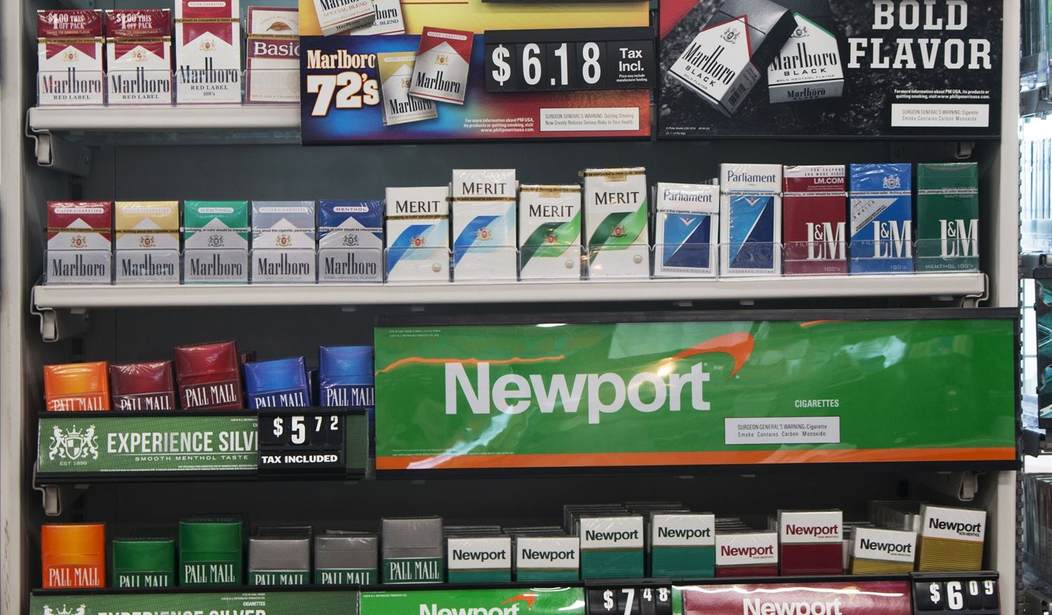Congressional Democrats have proposed doubling the federal cigarette tax to pay for the $3.5 trillion reconciliation package. Not only is the proposal contrary to President Biden’s promise to not increase taxes on persons earning $400,000 or less, but it could prove hazardous to state budgets because an increase in a federal excise tax could spur smokers to quit – or switch to less harmful tobacco alternatives. Many states rely on both cigarette taxes and annual tobacco settlement payments to finance state funds and existing loans. If a large number of smokers switch and/or quit, these expected revenues will quickly evaporate.
To understand how states got into the business of securing money from smokers, one must revisit the past. In the mid-1990s, amid growing controversy regarding the tobacco manufacturers, many states began suing tobacco companies for costs associated with smoking-related health issues. As many smokers are low-income persons, these health issues were largely subsidized by taxpayers via public health insurance programs, including Medicaid. In 1994, Mississippi became the first state to sue tobacco companies. By 1998, 40 other states had also sued. In 1997, Mississippi would be the first to settle, while three other states (Florida, Texas, and Minnesota) would also settle with their own lawsuits. On November 23, 1998, the 46 remaining states, five U.S. territories and Washington D.C. entered the landmark Master Settlement Agreement (MSA).
Under the MSA, and similar to previous state settlements, tobacco manufacturers agreed to several sets of provisions including prohibition of youth-oriented marketing, restrictions on the promotion and sale of tobacco products and bans on certain tobacco advertisements including “billboards, product placement in media, branded merchandize, free product samples, and most sponsorships.” Further, and perhaps the most significant provision of the settlement agreements, tobacco companies would pay the states billions of dollars annually, in perpetuity, with payments based on tobacco sales in the respective states. To date, the MSA is the “largest civil litigation in U.S. history,” and dwarfs the recently settled opioid lawsuits.
Recommended
While states sued the tobacco companies to make up for the costs of treating smoking-related health problems, the states continue to fail to allocate such monies to health care programs, or tobacco control programs to help smokers quit and/or prevent smoking uptake. In 2021, the states are estimated to receive $26.9 billion attributed to tobacco settlement payments and taxes. Yet, in the same year, states will only spend $656 million (2.4 percent) on tobacco control programs.
Further, states have consistently used both taxes and settlements on other programs, including paying for potholes, tax relief, and even giving back settlement payments to tobacco farmers that have been “affected by the drop in prices for their crop.”
Even more problematic, many states have sold off future tobacco settlement payments in the form of tobacco bonds for one-time, upfront lump sums, beginning as early as 2000. This is just a measly two years after settling with tobacco companies. Many of these states are still on the hook for future MSA payments, even as states receive fewer MSA payments as smoking rates continue to decline.
In California, due to several localities suing tobacco companies separately, cities including Los Angeles and San Francisco get their own portion of MSA funds. Since 2001, localities have issued tobacco securitization bonds, selling off future MSA payments for bonds that were used to “finance capital improvements and health care projects.” In 2003, the state created the Golden State Tobacco Securitization Corporation (GSTSC) and issued $5.6 billion in tobacco bond sales “to help balance the state’s budget.”
In 2007, West Virginia sold future MSA “payments to bondholders for $911 million, using more than $800 million of that bond to shore up the critically underfunded Teachers Retirement System.” In 2005, Michigan approved “the issuance of $400 million of tobacco bonds” to help fund a job creation program.
Tobacco bonds are risky investments. California recently made headlines when it was announced that the GSTSC would be selling $1.8 billion of high-grade bonds “to refinance older debt backed by” the MSA. In 2014 it was reported that Michigan owed more than $7 billion in tobacco bonds and one analysis estimated that Michigan will end up paying “back more than 1,800 times the amount it borrowed.”
Not only is it disturbing that lawmakers continue to rely on the lungs of smokers to finance programs other than health care and/or tobacco control, but the sources of revenue for both tobacco bonds and taxes are unstable as smoking rates continue to decline. In 1998, the same year as the MSA, approximately 22.9 percent of American adults were smokers. In 2020, this had dropped by more than 32.3 percent to 15.5 percent of adults.
Congressional policymakers should be wary. While a tobacco tax might feel like an easy fix to fund the latest spending plan, it could have dire consequences to lawmakers’ very own states who rely on smokers to finance their own projects.
Lindsey Stroud is Director of the Taxpayers Protection Alliance’s Consumer Center.

























Join the conversation as a VIP Member